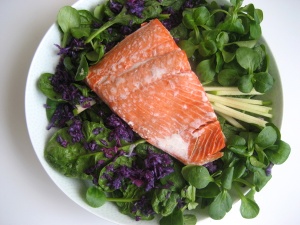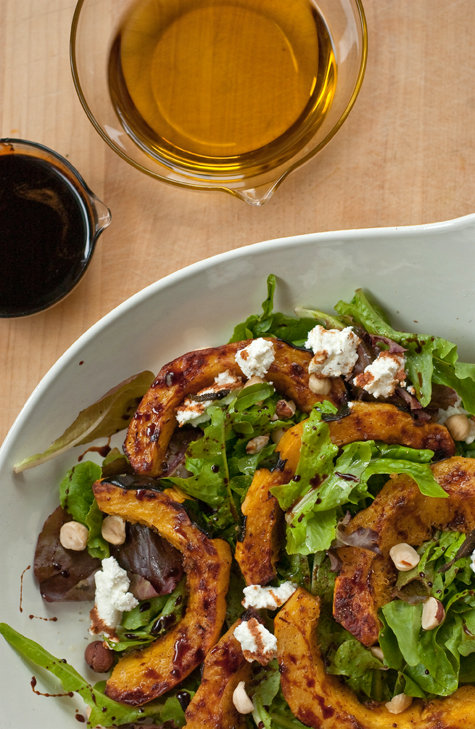 As part of our goal here at FAHBG to shape our bodies and minds closer to the ideal God created us for, we have decided to undertake a Primal Challenge (based loosely on Crossfit Integrity’s Paleo Challenge). Many of us have been off our game recently – whether still recovering from holiday snack habits or fasting for Lent – and our diets and fitness levels have generally not been what we hope they would be.
As part of our goal here at FAHBG to shape our bodies and minds closer to the ideal God created us for, we have decided to undertake a Primal Challenge (based loosely on Crossfit Integrity’s Paleo Challenge). Many of us have been off our game recently – whether still recovering from holiday snack habits or fasting for Lent – and our diets and fitness levels have generally not been what we hope they would be.
 It’s time we got back on the wagon, hardcore. To help us do this, we have set up a point system to track our dietary habits and keep us accountable, and simultaneously we will be embarking upon a strength program based on Whole9’s PTP program. Basically, we will be deadlifting and overhead pressing multiple times every week, focusing on strength over metcons (no matter how sexy).
It’s time we got back on the wagon, hardcore. To help us do this, we have set up a point system to track our dietary habits and keep us accountable, and simultaneously we will be embarking upon a strength program based on Whole9’s PTP program. Basically, we will be deadlifting and overhead pressing multiple times every week, focusing on strength over metcons (no matter how sexy).
So pull up your shorts (ala Josh), chalk up your hands, and purge your kitchen of all illicit food-like substances, ’cause this here is fo’ real!
Duration: Saturday, April 10, 2010 to May 22, 2010
Before and Afters:
Photo – front, side and back view (optional)
Measurements – body weight, waist circumference, and body fat (optional)
Performance – 1 mile run, CrossFit Total, Fran (if you’ve done these within the last month or so, you can count those times, if not, you need to do them before we start)
Nutrition Log – track your eating habits for at least a week before the challenge begins so you can see how much your habits change during the challenge
Results:
1. Measurement Improvements – weight, waist, and body fat plus visual change
2. Performance Improvements – 1 mile run, CrossFit Total, Fran
3. Scoring – points from daily nutrition and activity log
Scoring:
 You will be required to keep track of your eating in a Nutrition log. From this log, you will give a daily score of 0-10 based on your compliance with the Primal Diet. A score of 10 would represent a day of eating like a true hunter gatherer: nothing but meat, fish, eggs, veggies, fruits, nuts, and seeds.
You will be required to keep track of your eating in a Nutrition log. From this log, you will give a daily score of 0-10 based on your compliance with the Primal Diet. A score of 10 would represent a day of eating like a true hunter gatherer: nothing but meat, fish, eggs, veggies, fruits, nuts, and seeds.
~ 1 point off for every serving of: beans, hummus, peanuts, peas, agave, honey, real maple syrup, dried fruit, sweet or creamy salad dressings, or dairy (milk, yogurt, cheese, etc. and not including butter, heavy cream, or protein powder)
~ 2 points off for every serving of: soy products, quinoa, hot dogs, fast food meat
~ 3 points off for every serving of: grains of any kind including oatmeal, corn, millet, whatever.
~ 4 points off for every serving of: Soda, juice, sports drinks, white potato, most restaurant appetizers, cookies, all non-primal baked goods, ice cream, frozen yogurt, sweets, pancakes, processed marinades, BBQ sauce, anything with high fructose corn syrup, sugar added dried fruit, pizza, beer, wine and all alcoholic drinks. Exceptions: dark chocolate over 60% is no penalty, and up to 4 oz of red wine is no penalty.
If you know something is not primal but you’re not sure how many points to take off, just use your judgment. Obviously eating a donut should merit more points off than eating some lentils. If you make a primal dessert, just count off for any honey or flour you use, rather than counting it as a sweet. If you make butternut squash (primal food so no penalty) but add HFCS maple syrup substitute, you will need to subtract 4 points for every serving of syrup consumed. If you consume only half a serving size, then only subtract 2 points.
Note: It is important that you track absolutely everything you consume. Guess on your portion sizes if you’re eating out, but be as accurate as you can. Overestimate rather than underestimate – a portion size is often smaller than we think. For example, 1 can of soda is 2 servings. This means that if you drink an entire can you would lose 8 points. A serving of ice cream is usually half a cup, but most of us usually eat at least twice that in a sitting. If you go out for ice cream, you’re probably looking at 3-5 servings!
BONUS POINTS:
You may earn up to 8 bonus points per day to help make up for all those dietary cheats.
1. One bonus point for everyday you participate in a CrossFit-style, high intensity workout. The benefits of a Primal lifestyle are magnified when combined with a training program that combines constantly varied, high intensity, functional movements.
2. One bonus point for everyday you consume at least 6 grams of Fish oil. Our primary goal with this challenge is to reduce Silent Inflammation. Silent inflammation is far more insidious than classic inflammation because it is at the molecular level and may not be detected until it’s too late. It doesn’t generate the pain associated with classic inflammation and therefore goes untreated for years or even decades. Virtually every type of chronic disease (heart disease, cancer, and Alzheimer’s) has a significant inflammatory component as its underlying cause. Fish oil and its high quality Omega 3s seems to be a miracle cure.
3. One bonus point for everyday that you stretch MORE than 10 minutes.
4. One bonus point for every night that you sleep 8 hours or more.
5. One bonus point every time you engage in a low level activity (like going for a walk, playing a game, gardening) for MORE than 30 minutes.
6. One bonus point every day you eat at least .7 grams of protein per lean pound of body weight. For example, I weigh 145 pounds, with about 20% body fat which equals about 30 pounds of fat. So my lean body weight is 115, multiplied by .7 equals 80 grams of protein per day.
7. One bonus point every day you eat LESS than .7 grams of carbohydrate per lean pound of body weight. So with the example above, I would need to eat less than 80 grams of carbohydrate per day.
8. One bonus point every day you eat at least 3 cups of green (or otherwise high nutrient) veggies (including real lettuce (not iceberg), spinach, broccoli, Brussels sprouts, red cabbage, beets, kale, etc. and NOT including carrots, sweet potatoes, avocados, tomatoes, or green beans, which are higher carb/fat veggies).
By tracking your eating and activity, you should come up with your total for each day: between – infinity and 18 points.
I like to use mydailyplate.com to track my eating habits, which is free and user friendly.
Post questions and comments below…. Who’s with me??





